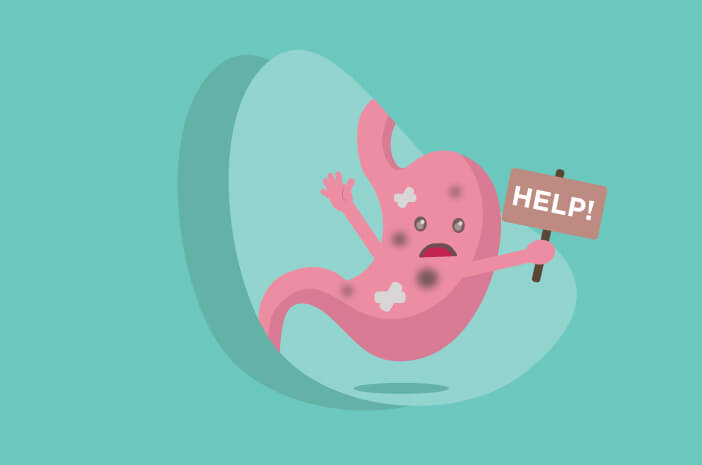
Bachelor’s Degree in Nursing Program at Alma Ata – Although ulcers and acid reflux share common symptoms, they exhibit distinct characteristics. Stomacg ulcers occur when the protective mucous layer that shields the stomach lining diminishes, enabling digestive acids to corrode the stomach’s lining tissue. In contrast, acid reflux is a condition where the produced acid ascends into the esophagus, causing discomfort like chest pain or heartburn. Both conditions can lead to more severe illnesses if not promptly addressed. The primary cause of gastric pain is not the stomach acid itself; it arises due to injuries to the stomach lining and can exacerbate with stomach acid. In contrast, acid reflux is caused by the stomach acid itself, as it exits the stomach and enters the esophagus.
Even though the symptoms are nearly identical, there are notable distinctions in the symptoms of stomach ulcer, including:
- A burning sensation in the stomach, specifically in the region between the navel and the breastbone.
- Frequent belching.
- Reduced appetite due to discomfort in the stomach.
- Nausea during or after meals.
- The sensation of bloating in the stomach.
- Pain that alleviates after eating, drinking, or taking ulcer medication.
On the other hand, notable symptoms of acid reflux are:
- Sour taste felt at the back of the mouth.
- Persistent dry cough.
- Irritated or sore throat.
- Difficulty in swallowing.
- Symptoms resembling asthma.
- Aggravation when lying down or bending over.
- Inducing dizziness and blurred vision.
Several common causes of stomach ulcers include the consumption of high-fat foods, such as coconut milk-based dishes, fried and spicy foods, caffeinated beverages, and soda. Lifestyle factors that contribute to increased stomach acid include regularly delaying or skipping meals, smoking, excessive alcohol consumption, overeating, going to bed immediately after eating (without allowing at least a three-hour gap), being overweight, lack of sleep, and high stress levels. Considering these factors, it is crucial to modify our habits, including eating patterns, sleep, and lifestyle, to prevent exacerbating our body’s condition. Additionally, effective stress management is essential to prevent acid reflux and the potential onset of other health issues.
Source: https://www.halodoc.com

